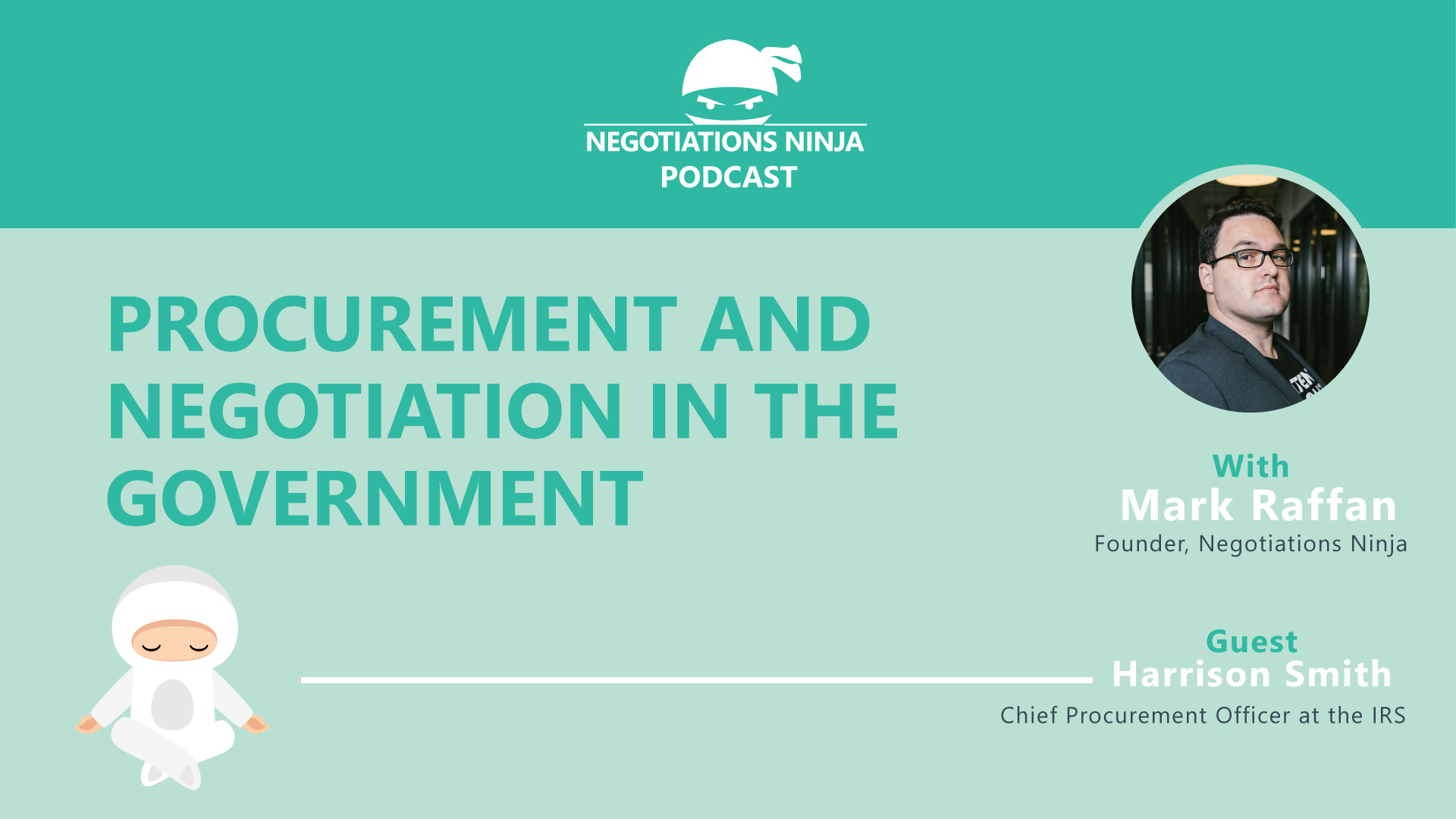Harrison Smith—the Acting Chief Procurement Officer at the IRS—is on the Negotiations Ninja Podcast to talk about how procurement and negotiation work in the government. We got into a very interesting discussion on the difference between public and private procurement. It gave me a new appreciation for the work our brethren in public procurement do. The amount of pressure that these folks must be under to keep all stakeholders engaged and happy must be incredibly immense. Don’t miss this interesting look into the world of negotiation in the government.
Outline of This Episode
- [3:04] Learn more about Harrison Smith and his role at the IRS
- [5:38] The two major differences between the public and private space
- [8:25] Procurement in the public space must work within constraints
- [11:31] Implementing reverse industry days to spur conversations
- [17:33] Navigating communication with internal stakeholders
- [21:50] What private procurement needs to know about public procurement
The two major differences between the public and private space
Harrison shares that there are two major differences: risk and funding. Most procurement people can buy something and see a return on their investment. You’re beholden to shareholders, your company, your boss, and yourself.
But the risk is different than someone with the Department of Homeland Security. In the private sector, you’re spending the company’s money. When you work with the Federal government, you’re spending everyone’s money. You’re beholden to constituents and congress in addition to organizational stakeholders.
Secondly, public procurement gets most of its funds on an annual basis. They have to spend all of the money for the year from 10/1–9/30. Because of how things work, they don’t get the funding until the 2nd, 3rd, and 4th quarters. They have to make sure they’re supporting the mission in a timely manner. Those funds go away if unused.
Procurement in the public space must work within constraints
Stringent laws regulate what you can and cannot do in public procurement. Harrison points out that they have to follow 2,000 pages of regulations. They strive to promote small business participation or optimize the use of particular vehicles. There are technical and legal repercussions for bad actors who violate public trust. But these laws give them a structure to work within.
Legality becomes interesting in negotiations because it’s the Federal government’s responsibility to negotiate a fair and reasonable price. Whereas in the private sector, depending on the nature of the relationship, you may negotiate aggressively on price. They are engaged in some long timelines because of the nature of what they do.
Industries are the customer of the government
They look at the industry as a customer. How much does it cost them to respond to their request for a bid? They talk with potential suppliers about thresholds and barriers to competition to get new and innovative ideas flowing in. They will take risks where it makes sense.
Private procurement doesn’t often think about the barrier to entry for suppliers. An RFP might favor only a few companies in a sector and discounts everyone else. So having those conversations to bring in new market entrants is innovative.
Navigating communication with internal stakeholders
Harrison’s goal in procurement is to look at their customers and help them support their mission. They recently invested in customer journey mapping sessions to build a methodology and approach to support their stakeholders. What are their priorities, pain points, and challenges?
Harrison wants to be there to help them craft procurement based on what they need. You need to start conversations to share the value proposition that you bring to the relationship. It’s about shifting the view of procurement to that of a valued partner.
Listen to the whole episode to learn what private procurement needs to know about public procurement!
Connect with Harrison Smith
- Connect on LinkedIn
Connect With Mark
- Follow Negotiations Ninja on Twitter: @NegotiationPod
- Connect with Mark on LinkedIn
- Follow Negotiations Ninja on LinkedIn
- Connect on Instagram: @NegotiationPod




